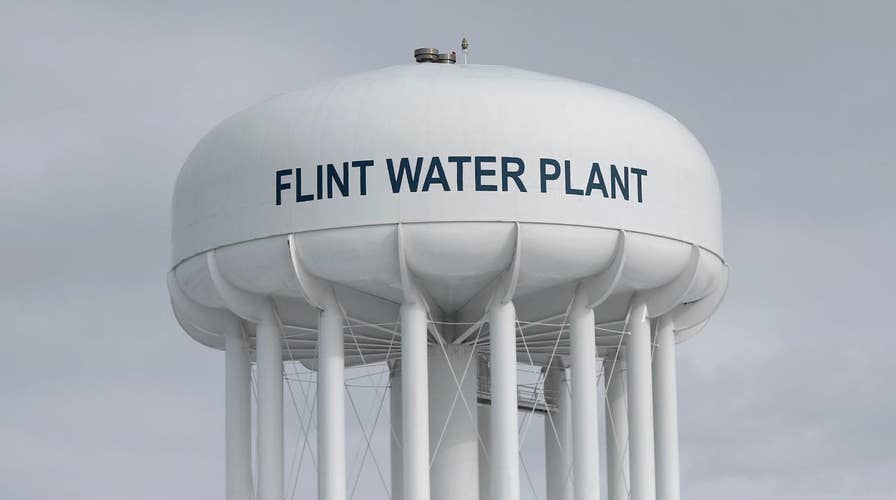Whatever happened to the Flint water crisis?
Crews are at work, but less than 25 percent of the lead pipes have been replaced and poisonous water continues to flow into most houses; Mike Tobin investigates for 'Special Report.'
The state of Michigan has settled with victims of the Flint water crisis for more than $500 million, and details of the settlement are expected Friday, the Detroit News reports.
Ryan Jarvi, a spokesman for Michigan Attorney General Dana Nessel, would not confirm the settlement Wednesday night and said that the parties involved aren’t authorized to speak publicly yet.
“The Attorney General’s and Governor’s teams have been engaged in an ongoing collaborative mediation effort in the Flint Water Cases for more than 18 months,” Jarvi told Fox News in a statement. “We and the other parties are bound by a federal court order to maintain the confidentiality of detailed settlement and mediation communications until we reach a certain point. We have not yet reached the point where we can discuss a potential settlement.”
SUPREME COURT PUSHES FORWARD FLINT WATER CRISIS VICTIMS' CASES
Dozens of lawsuits related to the Flint water crisis have been filed against the state of Michigan in recent years, so a settlement of this magnitude would be a huge development in the legal battle.
Flint began getting water from the Flint River in April 2014 to reduce costs. Problems immediately arose as residents started complaining of health issues such as rashes and hair loss.
More than a year later, in September 2015, a group of doctors found dangerous levels of lead in the blood of children and urged the city to stop using water from the Flint River.
CLICK HERE TO GET THE FOX NEWS APP
A month later, in October 2015, the city switched back to the Detroit system, but the damage was done. Michigan health officials reported in January 2016 that there was an outbreak of Legionnaires' disease near Flint, causing several deaths and dozens of illnesses.
This settlement could mark the end of the civil side, but there still may be new criminal charges. In June 2019, Michigan Solicitor General Fadwa Hammoud dropped criminal charges against eight people tied to the Flint water crisis, and said his office was starting from scratch.
Flint has been working for four years to replace the lead and galvanized steel pipes that carry water to residential homes in the city. As of this month, the project has replaced 25,953 potentially dangerous service lines and has about 2,500 more to go. City officials expect the work to be completed by November.
The Associated Press contributed to this report.










































